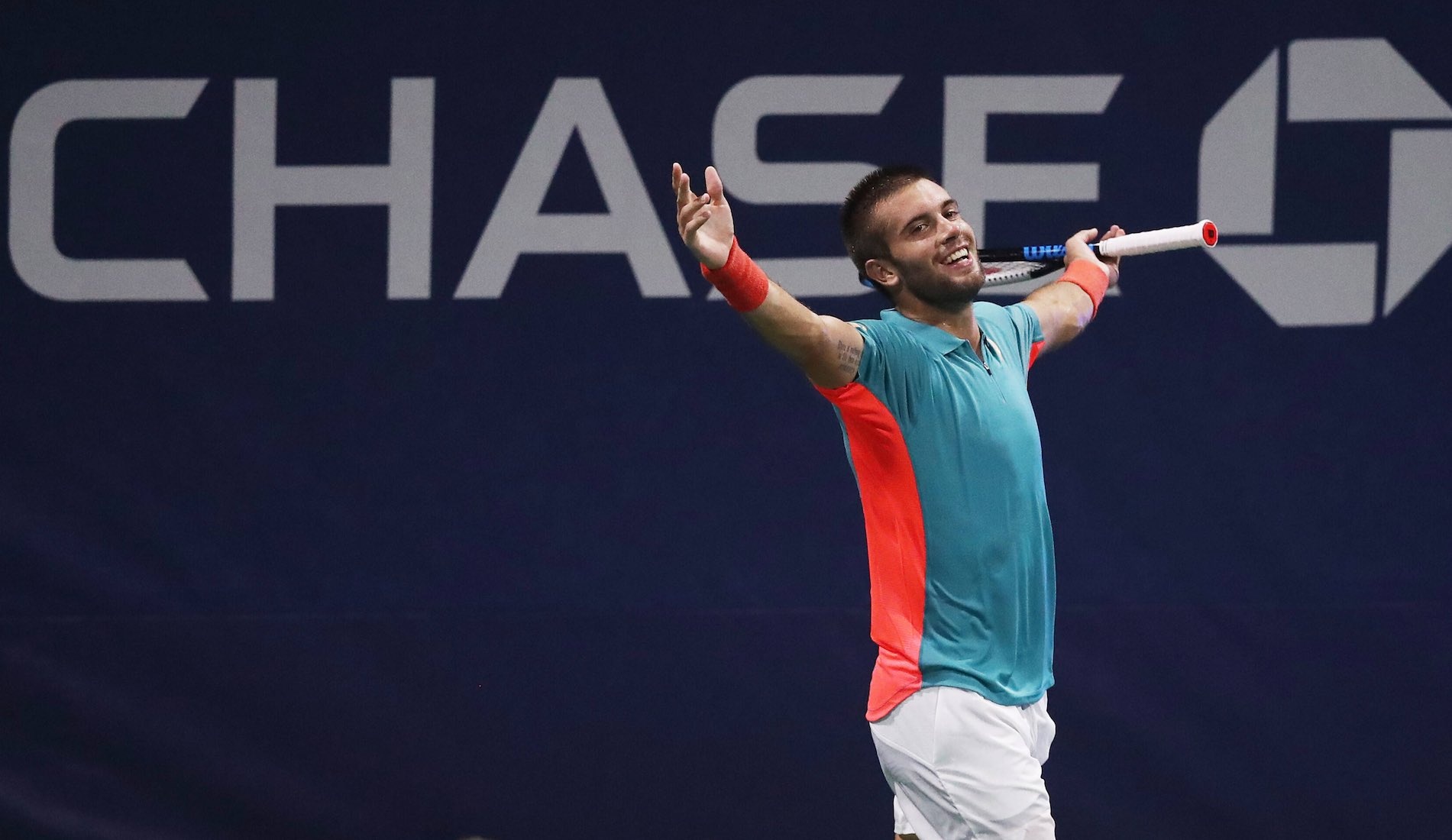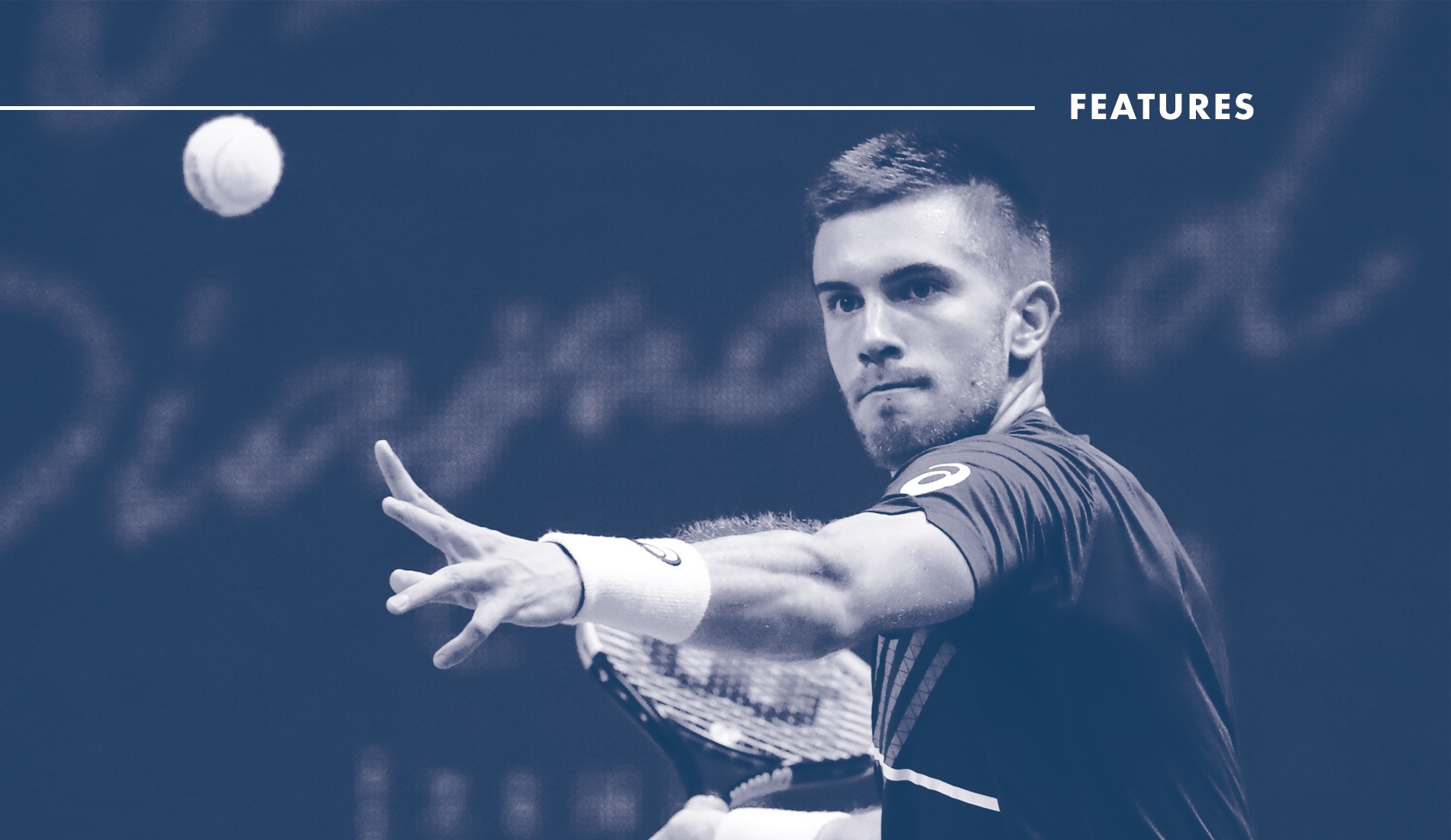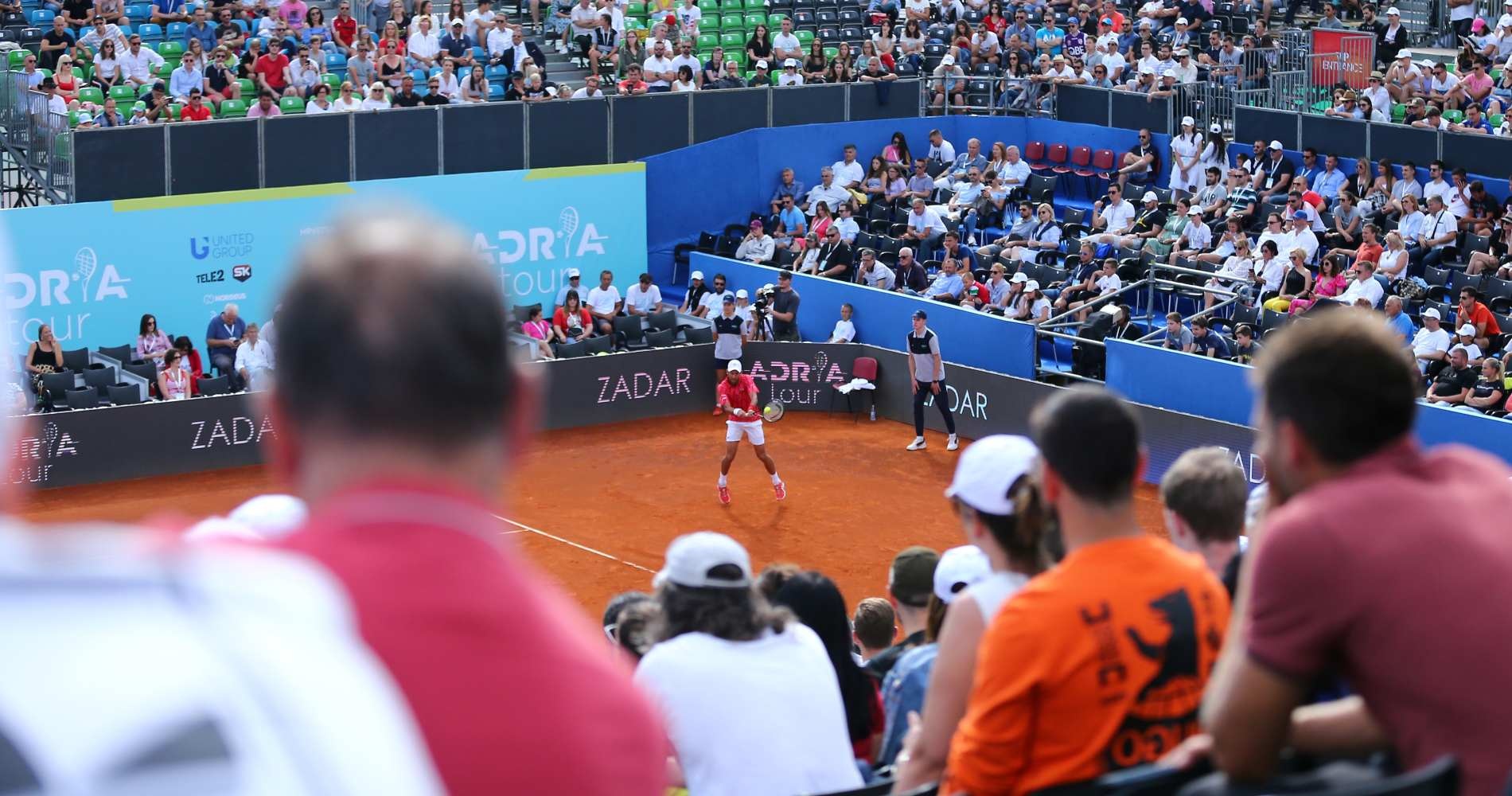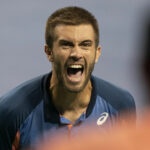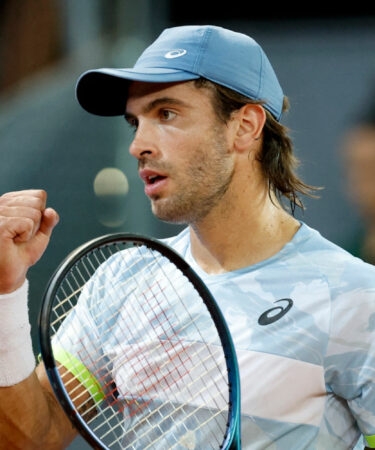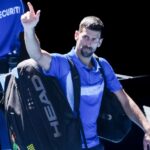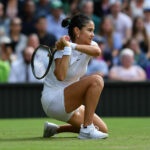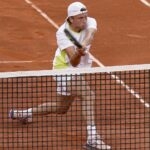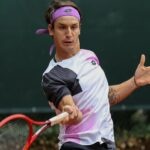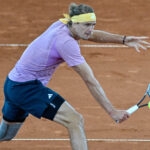‘I didn’t touch a racquet for seven months’ – Borna Coric exclusive on injury, rehab and return at Indian Wells
Before finally returning to the Tour, the Croatian talked to Tennis Majors about his new coach, the arduous process of rehabilitation, advice for younger players dealing with injuries, and why he doesn’t set goals any more
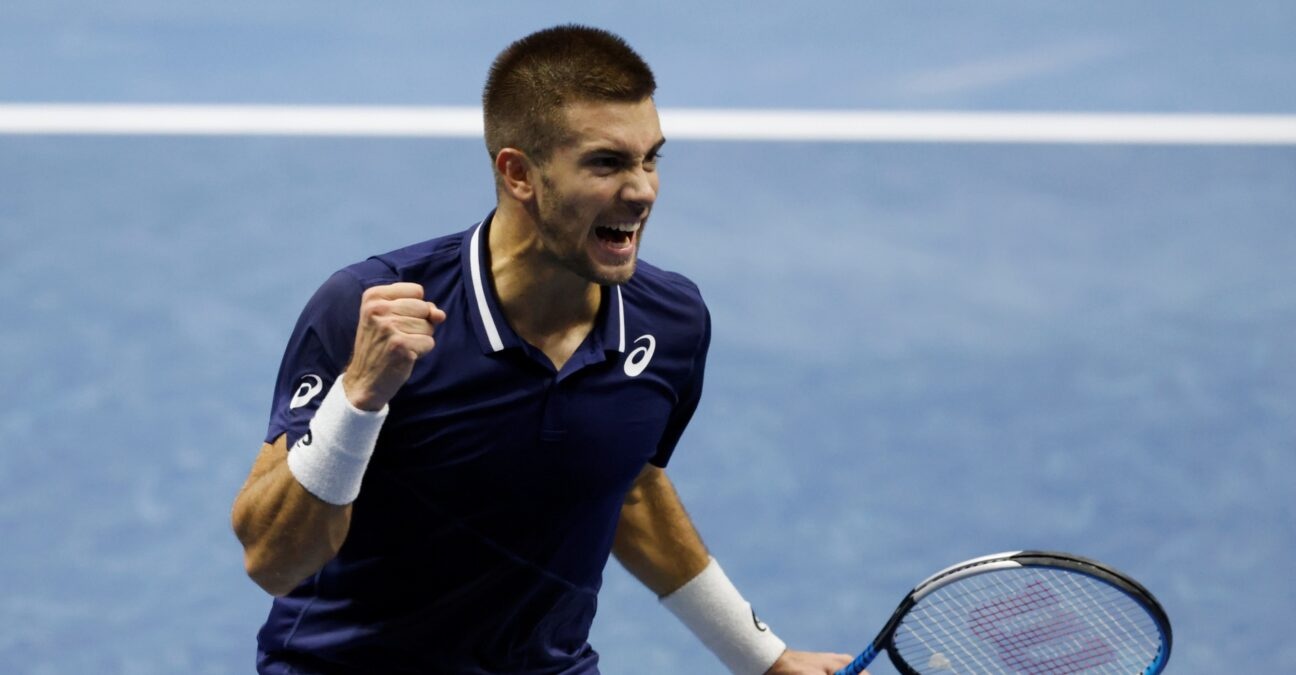 Croatia’s Borna Coric reacts during his quarter-final match against Reilly Opelka of the U.S. in St Petersburg in 2020 (Panoramic)
Croatia’s Borna Coric reacts during his quarter-final match against Reilly Opelka of the U.S. in St Petersburg in 2020 (Panoramic)
Indian Wells 2022 | 1st round : Coric v Davidovich Fokina (see the draw)
During his semi-final match in Rotterdam in 2021 against Marton Fucsovics, Borna Coric could barely put in a serve. It turned out to be his last tennis match in more than a year.
After undergoing a right shoulder surgery, followed by eight months of rehabilitation, the former world No 12 is finally ready to step onto the court in an official match. Coric is due to play in Indian Wells, a tournament where he reached the semis in 2018, starting his biggest breakthrough so far.
Before his return to the court, Coric spoke to Tennis Majors on his rehab, his doubts, his new team, and how he feels now about tennis.
Coric : ‘I befriended the ball again’
First of all, how are you feeling about finally coming back to the Tour?
Borna Coric : I can’t compare this feeling to anything, since this is my first time being sidelined for a year. My last similarly long break happened when I was 12-13, and I had wrist surgery.
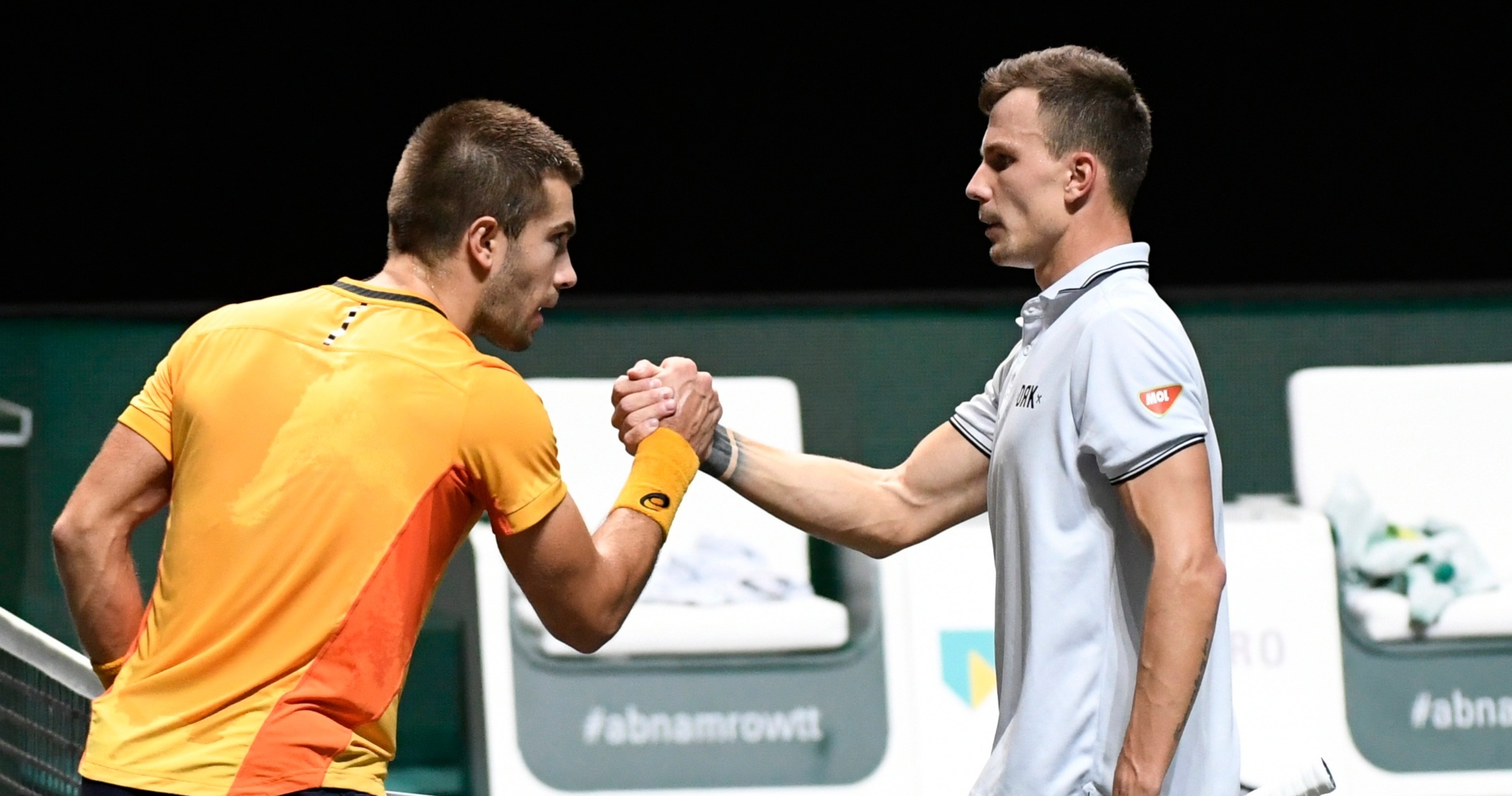
It feels incredible to be back. I have been playing for quite some time. I started on 1st November, although I could not serve at that point. So I have been playing tennis for three months now, and in the last two I was able to serve properly. Let’s say I befriended the ball again, ha-ha, and it feels wonderful, since previously I hadn’t touched a racquet for seven months, which was the longest stretch in my career.
You have been practising for several days in California now. How did your colleagues welcome you back?
Great, as always. The thing is, I was in Australia, so I have already seen the majority of them there, since I wasn’t sure about whether I would be able to play in Melbourne until the last moment. Furthermore, I have done part of my rehabilitation in Australia since early December. Also, I keep in touch with the colleagues I am close with.
I didn’t feel secure, I served lightly and still felt pain
Borna Coric to Tennis Majors
You have said recently that at one point you were afraid that you wouldn’t be able to continue your tennis career. Can you take us through your thoughts at that time?
Borna Coric : Well, when a professional athlete goes to surgery, it is never guaranteed that he will come back the same. I had slight complications after the surgery, because the pain was present longer than we anticipated. Speaking from this perspective, perhaps that was to be expected, but at that time it seemed to me that I was pretty late with my rehabilitation.
I didn’t feel secure, I was serving lightly and still felt pain, along with spasm in my muscle, all of which I was told should have been gone by then. Doubts did creep in, but I knew that I had to do my part every day so that I could come back to the place that I was, physically and serve-wise.
The doctor who performed the surgery told me that there was a chance that I could be ready for the US Open. When that time came, I still hadn’t even picked up a racquet, so it was normal to have some doubts.
What was your darkest moment in the past year?
Borna Coric : I felt good after the surgery because I thought that I would come back much quicker. Throughout all of this, I was extremely motivated to get back as soon as possible, so I kept myself physically fit.
For me, the hardest period of time was when I realised that I wouldn’t be able to compete at the US Open, that I was not even close to achieving that goal. After that, I took a two-week vacation to rest from everything.
I went to the seaside, did not do any workouts, did not practise. Perhaps that was the hardest time, but on the other hand, I had a lot of fun on vacation, to be honest, so I handled what was happening easier.
The man who helped Borna both mentally and physically
Who has helped you the most in handling the situation?
Borna Coric : My physiotherapist Yiani Louizos, I always emphasise his contribution. Without him, I certainly would not be here where I am now. He is very devoted, an expert in his field, and he always chose the right words to tell me. It was not easy, because the rehabilitation lasted for eight to nine months with a lot of ups and downs – it hurt, it didn’t hurt, and so on…
A lot of ups and downs – it hurt, it didn’t hurt, and so on…
Borna Coric to Tennis Majors
Yiani handled everything really well and he did not abandon me at a time when there were no guarantees for the future. He stayed with me, believed in our work and in my ability to return to 100 per cent physically, and that my shoulder would be better than it was.
Even when I didn’t believe, he did, and he was reassuring me, pushing me to put in the work even when I didn’t feel like it. Work ethic was never an issue for me, but I am used to tennis practice and heavy workouts. And then, all of a sudden, all I had to do for two hours was move my shoulder gently up and down and back and forth. That was really demanding for me mentally.
New coach: I needed someone with me 50 weeks a year
Yiani is obviously a big part of your team, but who else is part of it at this moment?
Borna Coric : My new coach is Mate Delic (former world No 150), and it is just Yiani and him. I know, a much smaller team than before! Mate has been helping me for the last four years, since he stopped playing professionally. He jumped in often – not that much when I was working with Rcicardo Piatti and Kiki (Kristijan Schneider), but quite often during my time with Martin (Stepanek).
Mate and I have known each other a very long time, he really knows me in detail: my game and the way I am, my personality. He is relatively new to coaching, but we are very good friends and I felt that it was the right time for us to work together.
Tennis is a circus – it is hard to evaluate who is real and who is fake. I have some regrets from earlier in my career – but I was very young then
Borna Coric’s advice to young players
Also, when I was thinking about who my next coach should be, I came to the conclusion that I need someone who is going to be with me full-time, 50 weeks a year. Unfortunately, that is hard to find nowadays, and Mate was willing to be with me throughout the year. Let’s see how it goes.
Did you change your serve motion at all?
Borna Coric : No, not at all, I was pretty stubborn in that regard. My physio, as well as a woman from Australia who helped my recovery, spoke about the possibility of changing the motion, but it was the only thing I was very strict about – I said that I don’t want to change my serve. I feel that my serve has become one of my biggest weapons in the last two to three years.
I watched a lot of footage of me serving, I think that the motion was not the problem. Also, I feel that it is complicated to change the motion at my age.
You have a lot of experience now and a lot of injury troubles as well, unfortunately. In that sense, what kind of advice would you offer to younger players?
Borna Coric : Looking at it from my current perspective, I am sorry that I was not able to gather a better team when I was younger. On the other hand, it is a circus – lots of people, lots of coaches – so it is really hard to evaluate who is the real deal and who is fake. That is why I can’t really blame myself, especially because I was very young, but I regret it nevertheless.
That is why I feel that for young players it is vital to be aware of where the future problems may lie, when there is significant mileage behind them. For instance, if I did a proper scan of my shoulder when I was 18, I don’t think that it would have come to this. Had I known what was going on with my shoulder, I would have done exercises accordingly. I am almost sure that this would not have happened, or it would happen in ten years, and I have had shoulder issues since I was 23.
Everyone’s body has a weak spot and mine is definitely the shoulder. I didn’t take care of it in the right manner when I was younger. Tennis is a very demanding sport when it comes to scheduling – I realised what the problem was when I was 23-24, but I never had the luxury of taking 10-12 weeks off in order to give it my full attention. And then it just gets worse.
I hardly watched any tennis during my time off
Borna Coric
Given that the break was very long, I know that it’s hard to talk about your goals, but did you set any?
Borna Coric : I really did not, I stopped doing that back in 2018. Before that, I would always have some stupid goals and I never fulfilled them. And then, when I didn’t set any, I managed to achieve things that I was longing for for quite some time.
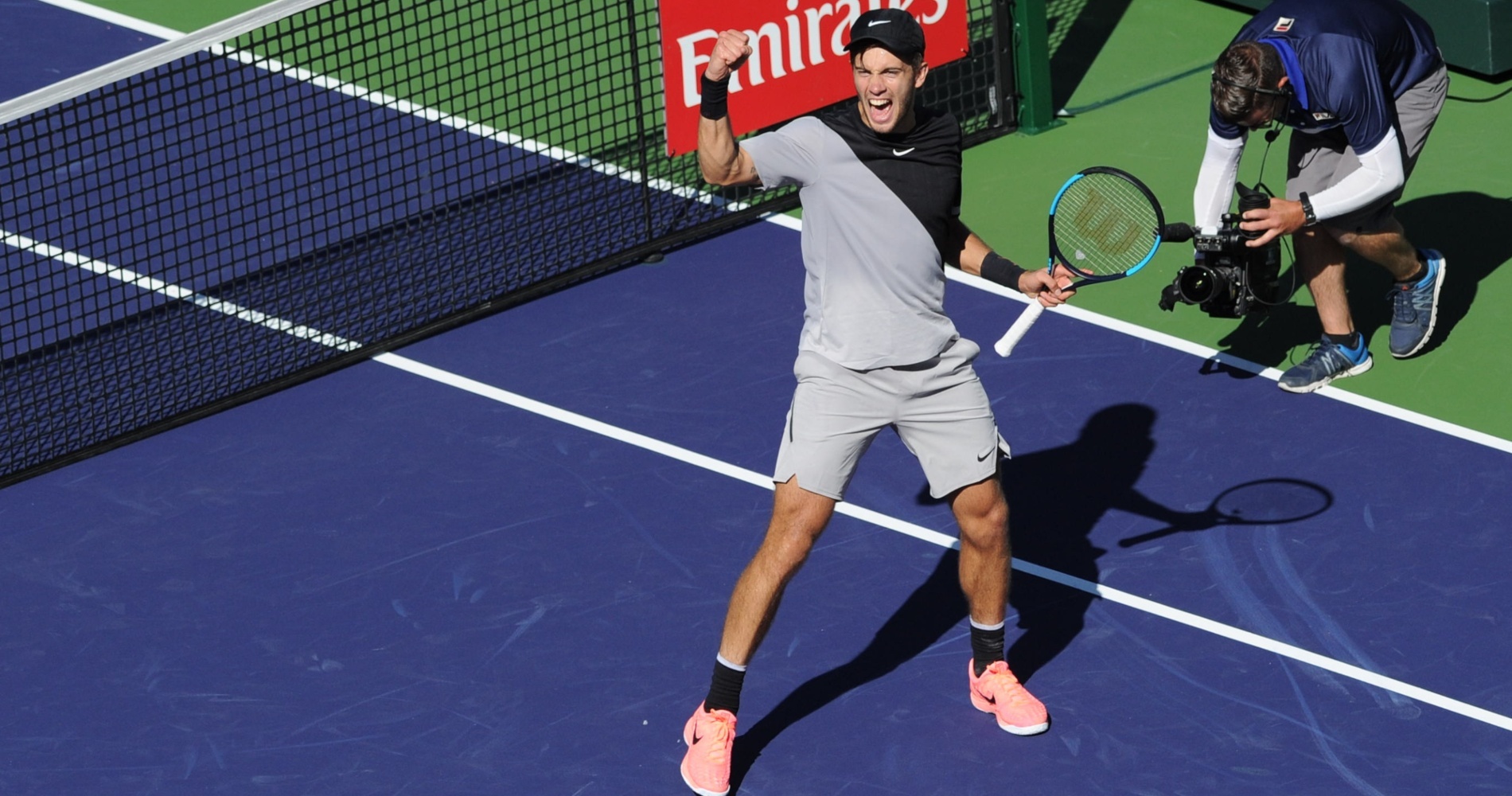
I know this sounds like a cliche, but my only wish is to stay healthy and pain-free. Before my shoulder surgery, I fixed some of my previous problems with the knee and the Achilles tendon, which is why I was even sadder because of the shoulder. But with all of this, I had time to work on everything, so I am in a good place now.
How much did you watch tennis during this hiatus?
Borna Coric : Very little. Usually I don’t watch a lot of tennis, except for when I am still in the tournament. For example, in Melbourne or in New York, I go to my room to rest and then I watch the night session matches. When I am out of the tournament, I rarely watch matches.
I saw the Roland Garros semi-finals between Djokovic and Nadal: the TV was on, but I was doing other stuff simultaneously, talking to my friends et cetera. I watched the Nadal–Medvedev final in Australia recently, the first two sets and then the fifth. I did watch a few matches of Filip Krajinovic, because he is a good friend of mine.
Indian Wells – the beginning of Coric’s breakthrough
Indian Wells really is a perfect place for your comeback. In 2018, you played one of the best tournaments of your career before narrowly losing to Roger Federer in the semis. What are your recollections?
Borna Coric : Phenomenal. I adore Indian Wells. Even before I reached the semis there, I would say that it is one of my favourite tournaments. I think the 2018 result marked the beginning of my breakthrough. Until then, I was always 40-60 in the rankings, and afterwards I entered the top 30, soaring to No 12 in the world later on. So, yes, amazing memories, wonderful place. And after that comes Miami, which I love very much as well.
You probably can’t know for sure until you step on the court for an official match, but where would you say your level is at right now?
Borna Coric : For the last month to month and a half in Zagreb, I even surprised myself with how well I was playing. Here in California, the conditions are different – it is outdoors and it is way hotter, which I did not adapt to yet. So, I had two really awful practice matches, but I am not worried. The most important thing for me is that my shoulder is doing well. In the last ten practice matches, it hurt a little once, which is expected.
As far as my first official match goes, I am really not sure what to expect. There were some really remarkable days and then there were days when I was playing awfully. The key for me is to relax and enjoy.
I felt like I was being ground down, but now my passion is renewed
Borna Coric to Tennis Majors
Finally – you are still young (25), although you have been around the block a few times – how long do you see yourself playing professionally?
Borna Coric : If you had asked me this before the surgery, I would have said, ‘Until I am 32 or 33 years old.’ Now I have lost a year, recharged my batteries, so I would like to play longer than that, but I never look that far ahead since life can change in a minute. Who knows what will happen, whether I will start a family, there are a lot of factors involved. Probably, if you ask me after the next 30 tournaments in 40 weeks, I will tell you that I am retiring at 30 – ha-ha-ha!
In all seriousness, what I can say is that this break made me realise how much I love tennis, I have missed it so much. For the last seven or eight years it felt like I was being ground down, with all the pressure and the expectations. So, in a way, what happened was good, because I had a chance to reset, renew my passion and to realise how much I enjoy my life as a tennis player.
